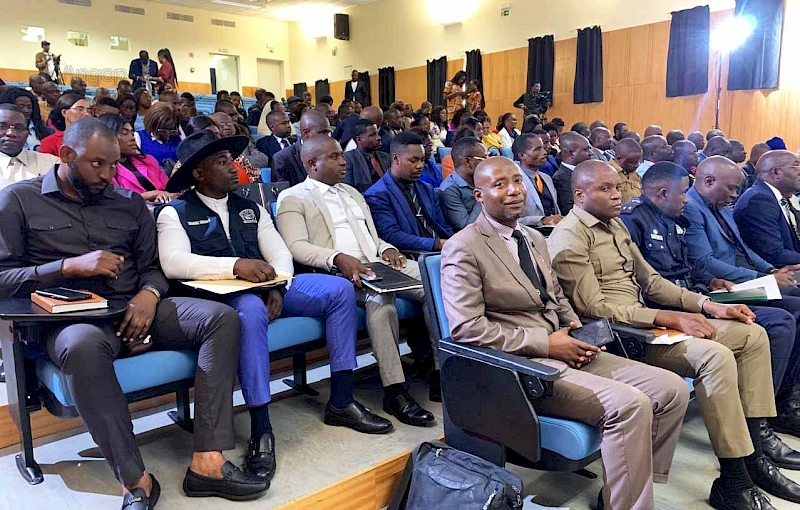Cuito - The United for Education project, which aims to help improve primary education, has arrived in the municipality of Cuito, Bié province, with teacher training and a meeting on teacher and pupil mobility.
The project which is a partnership between the Ministry of Education, the Ufolo Study Centre and the Ulwazi Foundation, works in the areas of teacher training, school management, school rehabilitation and equipment.
Speaking to ANGOP on Monday, at the end of a meeting on teacher and student mobility, the chairman of the board of the Ufolo study centre, Rafael Marques, defended the creation of a hybrid education system in the country, to reduce levels of absenteeism or even school dropout, especially among students who live far away.
The hybrid system he advocates consists of creating a semi-presidential format for students, through the creation of a travelling teacher.
He gave as an example the children of the village of Chilemo, in the commune of Chicala, in Cuito, who walk around 26 kilometres to get to school.
According to him, who is also a journalist, the idea is to work with the different sectors, such as the taxi drivers' association, motorbike taxi drivers, the national police and others, to find solutions to reduce the effort that children make in search of a good education.
In terms of training, 110 teachers from Cuito are attending a more up-to-date pedagogical aggregation course in terms of teaching methodologies, to improve the quality of the teaching and learning process, which is scheduled to end on Friday 31st.
The meeting on teacher and student mobility brought together two panels that looked at contributions to teacher mobility, as well as proposals for distance learning.
At the event, the municipal director of education in Cuito, Nelson Cacungula, pointed out the commune of Chicala, which is 62 kilometres away, as the most worrying, because in this community children travel more than five kilometres to get to school.
According to a report by the Ministry of Education (MED), which ANGOP had access to, the country had a total of 14,157 schools in the 2021/2022 academic year, of which 10,128 were public, 704 public-private and 3,325 private, totalling 104,366 classrooms, which absorbed a total of 8,481,458 pupils from beginners to 13th grade.
These classes were taught by 203,220 teachers.
The report points to a greater concentration of public schools in the provinces of Luanda, Huíla, Uíge, Cunene, Malanje, Benguela, Huambo and Bié.
Also speaking at the event were the municipal director of Transport, Traffic and Urban Mobility in Cuito, Zeferino Cândido Tomás, the second municipal commander of the National Police in Cuito, Humberto Moisés and a representative of the Ministry of Education's Technological Innovation department, Manuel Filipe Vicente.
The project, which was implemented in 2021, made its debut in Cuanza Norte.
To date, it operates in Malanje, Lunda Norte, Lunda Sul and Huambo. At the moment it only covers the provincial capitals. LB/PLB/MRA/DOJ































